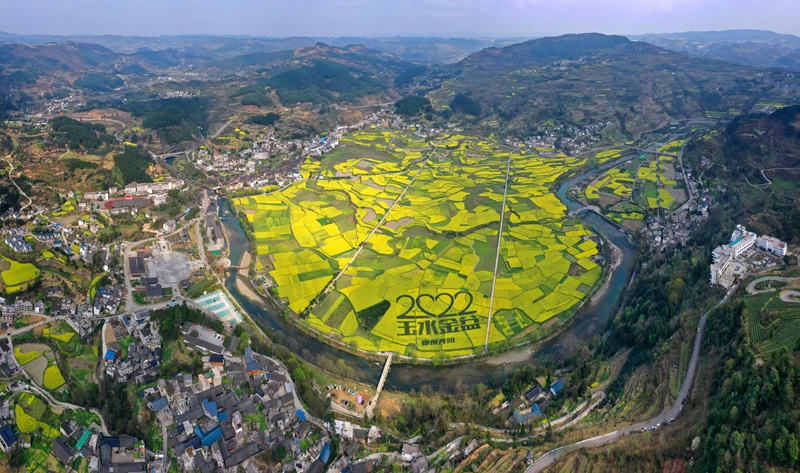The CPPCC National Committee is composed of representatives from the Communist Party of China (CPC), other political parties and from people's organizations and ethnic minority groups, as well as prominent citizens without political party affiliation. These representatives are then divided into different groups based on political parties, ethnic groups and social sectors. The committee fine-tunes its "grouping process" in line with changes in the major undertakings of the CPC and the state. Moreover, the committee is reshuffled once every five years.
Focusing on the environment and resources, the newest group has 85 members, making it the ninth largest among the 34 participating groups. Among the members of this new group, more than 40 percent are officials with backgrounds in environment and natural resources, and more than 30 percent are experts and scholars with the same backgrounds, while about 20 percent come from energy and chemical companies.
Previously, political advisors in the field of environment and natural resources were scattered across the different participating groups. Today, their joint efforts can specifically target environmental and resource issues and will allow the experts to draft proposals which they will then submit to the related government departments for further review—and acceptance. The latest move, as some experts have commented, is a reflection of China's commitment to preserving the country's biodiversity and achieving its dual carbon goal of peaking emissions before 2030 and achieving carbon neutrality before 2060.
The last time the CPPCC National Committee created a new participating group was 30 years ago, in 1993, when the economy group was created as China just embarked on a fast track of economic development.
The members
Min Qingwen, a member of the new participating group and a researcher with the Institute of Geographical Sciences and Resources under the Chinese Academy of Sciences, was also a member of the 13th CPPCC National Committee from 2018 to 2022. He then served in the agriculture group.
"The new participating group was established following growing concerns over ecological issues," Min said. "Environmental protection and progress are fundamental in pursuing Chinese modernization."
Min regards the establishment of the new group positive move as he believes it will allow policy advisors to take on a bigger role in formulating environment-related policies. "Environmental issues are not limited to ecological pollution; they cover a much larger scope, including ecosystem functions and services," Min added.
Take Beijing for example. How the capital, home to some 21 million people, can promote industrial revitalization by bringing into the fold the ecological functions of the suburban rural area is one topic Min brought to the new group's table. "This is a common issue for many cities across the country," he said.
Zhang Xingying, a member of the new group and deputy head of the science and technology and climate change department under the China Meteorological Administration, was also a member of the 13th CPPCC National Committee.
"We can hear more and louder voices in this new sector dedicated to the field of environment and resources," he said. "These voices will help us conduct more systematic research and assist the authorities in promoting ecological progress in a better way."
Zhang pointed out that since the 18th CPC National Congress in 2012, the topic of environmental protection has become a major feature on the state's overall agenda. The CPC National Congress, usually held once every five years, is the highest leading body of the CPC. A report delivered by Xi Jinping, General Secretary of the CPC Central Committee, to the 20th CPC National Congress in October 2022, read, "We will carry out coordinated industrial restructuring, pollution control, ecological conservation and climate response, and we will promote concerted efforts to cut carbon emissions, reduce pollution, expand green development, and pursue economic growth."
China has continued to promote ecological restoration, pollution prevention and carbon reduction in recent years, and has made remarkable progress that has in turn been hailed by the international community, according to Zhang. "The new participating group is set to play a more conducive role in providing the international community with Chinese solutions," he said.
Promising prospects
Yu Guodong, another member of the new participating group and Director of the Chongqing Bureau of Ecology and Environment, has witnessed how ecological preservation has gained increasingly more importance in China as a member of the 13th CPPCC National Committee.
From 2018 to 2022, Yu submitted 46 proposals, all centered on environmental protection. Soil pollution was his top concern. In 2018, the first year he served as a CPPCC National Committee member, his in-depth research found that the standards of heavy metal substance in soil couldn't meet the updated requirements for environmental protection and needed to be revised. He then submitted several proposals on strengthening soil pollution prevention and control and on improving soil quality standards.
The proposals were well received by the related departments, including the Ministry of Ecology and Environment as well as the Ministry of Agriculture and Rural Development. And in August that same year, the Fifth Session of the Standing Committee of the 13th NPC adopted the Law of the People's Republic of China on Prevention and Control of Soil Contamination.
His other proposals also received timely replies from related departments. This year, Yu's main focus is on the construction of zero-waste cities, an effort to phase out waste by creating and implementing systems that do not generate waste in the first place, environmental protection taxes, carbon peaking and carbon neutrality.
Yu emphasized how the discussions with his fellow group members have broadened his views and pushed him to start paying more attention to issues such as the balancing of economic development, cultural heritage preservation and ecological protection in nature reserves.
"The new participating group marks a new starting point for China's ecological development," he concluded.















